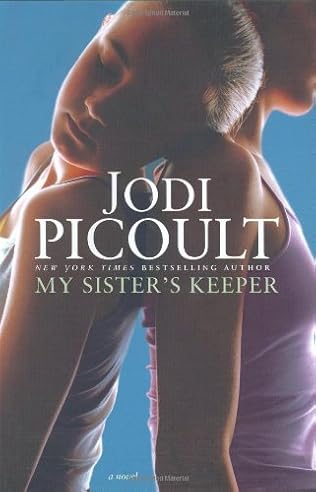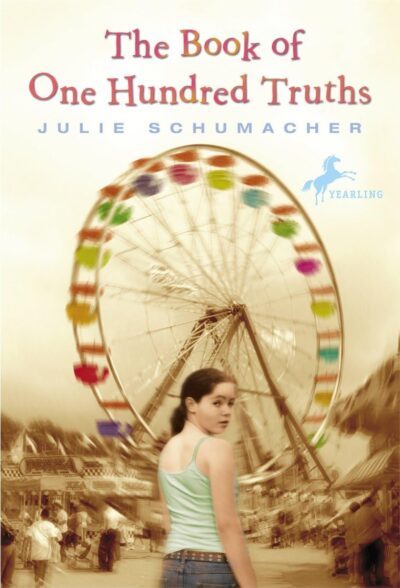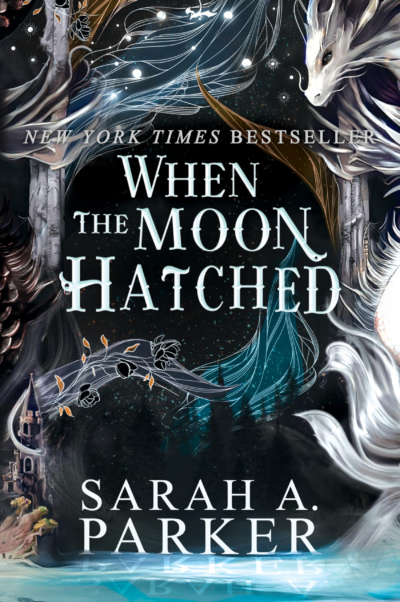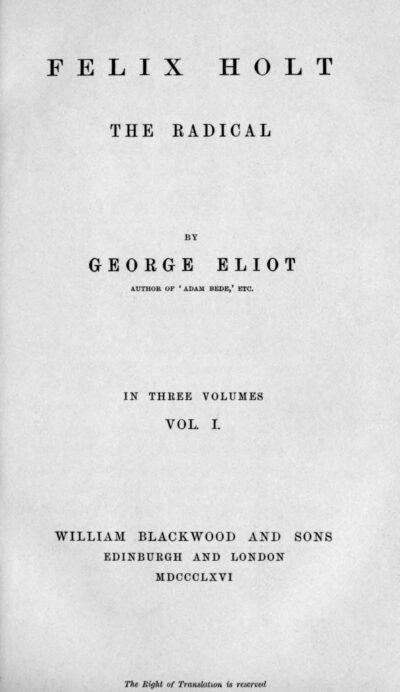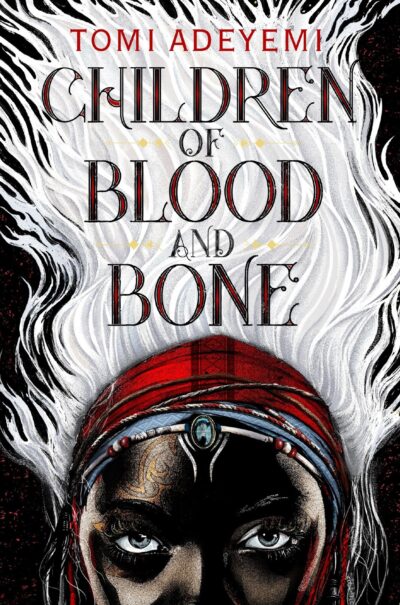My Experience So Far
For this second assignment, I decided to read My Sister’s Keeper. I found this book on my best friend’s bookshelf (also a huge bookworm). She and I have very similar reading styles so what she likes, I trust I will like. I have also seen clips of the movie made from this book on TikTok and have always been curious about how it plays out. So far, it is a tragedy mixed with a coming of age, but its official genre of it is commercial fiction. I have felt only a few emotions throughout my reading so far (currently on p. 423/423 Finisheddddd!), most of which have been anger towards the mother Sara, and sympathy for her three children, Anna, Kate, and Jesse. Kate is the glass child. She was only two years old when she was diagnosed with ATL, a severe form of leukemia with a very low survival rate. She was in remission from ages 3-8 before it came back 10x stronger. At the present time, Kate is 16, Jesse is 18, and Anna is 13. The entire premise of the book is about Anna suing her own parents for medical emancipation. Anna was born for the sole purpose of being a donor for Kate. She was created in a lab, the only embryo that was a complete DNA match to Kate. This is where a lot of my anger towards the mother comes in. She is so obsessed with Kate and her health that she basically forgets she has two other children who need her. While I am not a mother and feel I don’t exactly have the right to be so angry with Sara, I still am. In a way, I identify with Anna. Not in the same way of course, but I was the child that held the family together at a young age, yet sometimes feeling forgotten. The book bounces back and forth between the different characters and goes from the present time to the past so the reader can better understand the family lore. There are quite a few characters. Sara, Anna, Kate, and Jesse of course, but also the father Brian, Anna’s attorney Campbell Alexander, and Julia the ad litem or GAL (basically the person appointed by the court to represent the best interest of the child, in this case, Anna).
Classifying My Experience
I have felt so much anger throughout this book so far, mainly at Sara. It is so obvious that her two other children, Jesse and Anna, are crying for help. Jesse acts out by getting into trouble with the law, smoking weed, and doing various other drugs. He goes even as far as burning down old abandoned buildings (this plays a role in the storyworld portion as well. His father is a firefighter and is sent out to diffuse the fires unknowingly set by his son, but more on that later). Anna hires a lawyer against her parents. You would think this would make her realize something right?
I also experienced a lot of mind wandering. I noticed this only happened when I was reading through the perspective of Sara. It’s not that I wasn’t enjoying the book or reading through her point of view, it was more so wanting to get to the point of Anna’s perspective. I was more so intrigued when reading through Anna rather than any of the other characters. Ironically though, it seems that Anna’s perspective throughout the book is less than the others. I’ve gone multiple chapters cycling through the other characters before I get back to Anna’s.
Empathy is another big one I feel when reading this book. Although I feel mostly anger towards Sara, there is only so much I can blame her for. This is also where I feel so many conflicting emotions. I get so angry with Sara but forget my empathy for her. I don’t agree with a lot of her actions, but at the end of the day her daughter is dying, and that is something I can and will hopefully never have to go through to understand just how she is feeling.
What Prompted My Experience?
Now that I am reading this book for an assignment, I have been able to find soooo many more quotes that sparked emotion than in my last post. Here are just a few I feel have really got to me so far:
From Jesse, the eldest brother’s point of view:
It would solve a thousand problems if I rolled the Jeep over an embankment. It’s not like I haven’t thought about it, you know. On my liscence, it says I’m an organ donor, but the truth is I’d consider being an organ martyr I’m sure I’m worth a lot more dead than alive-the sum of the parts equals more than the whole. I wonder who might wind up walking around with my liver, my lungs, even my eyeballs. I wonder what poor asshole would get stuck with whatever it is in me that passes for a heart. – Jodi Picoult p. 94
This quote is where I felt a lot of empathy for Jesse. He may be considered a “bad kid”, but listening to his inner conflict opens the perspective of the reader. Jesse is the firstborn yet the most forgotten. He doesn’t even live in the house with his family, he lives in an apartment over the garage. He moved there when he was just 16. His acting out is just a way for him to (a), get rid of some of that pent-up anger he holds inside of him, and (b), to get some sort of attention from those around him, even if it is negative.
This next quote is from Sara’s inner dialogue when asked if she has a name picked out for Anna yet:
It strikes me that I don’t. Although I am nine months pregnant, although I have had plenty of time to dream, I have not really considered the specifics of this child. I have thought of this daughter only in terms of what she will be able to do for the other daughter I already have. – Jodi Picoult p. 100
Oh my god, this quote made me so angry. This chapter presents Sara’s perspective from the past when she was pregnant with Anna. She is at the salon getting her hair done with other pregnant women. One asks her what she is thinking of naming her baby. Sara has no idea. At first, I was giving her the benefit of the doubt. Who am I to sit here and say she’s a horrible mother? I still wouldn’t go that far, but my sympathy for her is nearly out the window at this point. I thought maybe she was so un-self-aware that she didn’t realize she was creating a whole other being just to save the one she already made and truly did care about Anna. This quote made that thought seem stupid. She even admits to herself and the reader that she has not thought of this child in terms of being human, only in terms of saving her other daughter.
This next one is again, through Sara’s point of view…
Anna scowls. “Why did I have to leave the party?”
Because your sister is more important than cake and ice cream, because I cannot do this for her, because I said so.
I’m so angry that I have to try twice before I can unlock the van. “Stop acting like a five-year old”, I accuse, and then I remember that’s exactly what she is. -Jodi Picoult 172
In this soliloquy, I understand Sara’s perspective. In the given moment, she is correct. Kate is more important than cake and ice cream. Her anger towards Anna however is completely unwarranted. This is another example of Sara ignoring her other children’s needs for Kate. This is also where I feel a lot of conflicting emotions. Kate is more important than her other children’s needs right now. It is life or death for her. It is just upsetting to see how poorly she treats her other children when she is feeling stressed about Kate’s health. Anna is so young at this point, that she doesn’t understand what is going on with Kate and why she is being taken away from her friend’s birthday party. This affects her future as well as she doesn’t have many friends. All of the people who are nice to her only treat her that way out of sympathy for her family. No one wants to hang out with her outside of school or have the usual teenager slumber parties. Anna is alone and it is sad to see.
I walk in to find Brian’s big hands fumbling a Lilliputian clasp on the back of a necklace, as he hangs a locket around Abba’s neck. “I thought you deserved your own gift since you were giving one to your sister”. Of course, Anna should be honored for donating her bone marrow. Of course, she deserves recognition. But the thought of rewarding someone for their suffering, frankly, never entered my mind. We’ve all been doing it for so long. –Jodi Picoult p. 233
When I read this, I thought, “I’m sorry, what?”. For Anna, that bone marrow draw was frightening. She was put under anesthesia and stabbed by an “impossibly long needle” in Sara’s own words into her hip bones. When this scene was taking place, Sara had just gotten done berating one of the nurses for higher dose pain meds for Anna because she was in so much pain. Yet she felt Anna didn’t deserve a gift herself because she should feel honored to have gone through that pain??? Makes no sense to me.
This one is going to be long (Sara’s perspective, past perspective), but stay with me:
He brushes back the pale hair that surrounds Kat’es face. “She’s such a good girl. She’s always done what you ask her to do” I nod, unable to speak. “That’s why she’s hanging on, you know. She wants your permission to leave.” He bends down to Kate, crying so hard he cannot catch his breath. I put my hand on his head. We are not the first parents to lose a child. But we are the first parents to lose our child. And that makes all the difference.”
When Brian falls asleep, draped over the foot of the bed, I take Kate’s scarred hand between both of mine. I trace the ovals of her nails and remember the first time I painted them, when Brian couldn’t believe I’d do that to a one-year-old. Now, twelve years later, I turn over her palm and wish I knew how to read it, or better yet, how to edit that lifeline.
I pull my chair closer to the hospital bed. “Do you remember the summer we signed you up for camp? And the night before you left, you said you’d changed your mind and wanted to stay home? I told you to get a seat on the left side of the bus, so that when it pulled away, you’d be able to look back and see me there, waiting for you.” I press her hand against my cheek, hard enough to leave a mark. “You get the same seat in Heaven. One where you can watch me, watching you.” – Jodi Picoult p. 271
This chapter had me absolutely sobbing. It was when Kate was 14 and back in the hospital. This time, they were told to say goodbye. The doctor proposed a rare treatment, arsenic. Sounds insane, honestly but they gave her the medicine and it put her in recovery for a year. I know a lot of the quotes I have included are about how I hold so much anger towards Sara, but this chapter showed her vulnerability and her sadness instead of her anger. The majority of the chapters are told from Sara’s perspective she is nothing but manipulative and rude to her family, excluding Kate of course. This chapter immersed me in the life that Sara has lived, and at the end of the day, I can only blame her for so much. Her suffering shouldn’t go unnoticed by me.
Brian gets called to an emergency where an elementary school is set on fire. They traced the tracks and found the origin of the fire. The couch was doused in gasoline with paper thrown on top. While on the scene, Brian finds a cigarette on the ground. He pauses for a second and puts the cigarette bud in his pocket. This conversation between him and Jesse happened later that same night. I am not including the first half of the conversation for length purposes, but Brian starts asking Jesse questions about the muriatic under the sink (a flammable substance):
He goes very still. “Are you accusing me of something? Because if you are, just say it, you bastard.”
I get up from the couch. “Okay. I want to know if you scored the bottles before you made the cocktails, so that they’d break easier. I want to know if you realized how close that homeless guy was to dying when you set the warehouse on fire for kicks.” Reaching behind me, I lift the empty Clorox container from his recycling bin. “I want to know why the hell this is in your trash, when you don’t do your own laundry and God knows you didn’t clean, yet there’s an elementary school six miles from here thats been gutted with an explozive made of bleach and brake fluid?. I have him by the shoulders now, and although Jesse could break away if he really tried, he lets me shake him until his head snaps back. “Jesus Christ, Jesse!”
He stares at me, his face blank. “Are you about done?” I let him go and he backs away, teeth bared. “Then tell me I’m wrong” I challenge
“I’ll tell you more than that,” he yells. “I mean, I totally understand that you’ve spent your life believing that everything that’s wrong in the universe all traces back to me, but news flash, Dad, this time you’re totally off base.” Slowly, I take something out of my pocket and press it into Jesse;s hand. The Meit cigarette butt settles in the hollow of his palm. “Then you shouldn’t have left youre calling card.” . . .
Jesse’s hand comes up, trembling, and the cigaretts rolls to the floor at our feet. He covers his face, presses his thumbs to the corners of his eyes. “I couldn’t save her.” The words are ripped from his center. He humches his shoulders, sliding backward into the body of a boy. “Who . . . who did you tell?”- Jodi Picoult p. 331
I apologize for the incredibly long quote, but I had to include it so you can understand what is happening. On the page before, Brian had found the cigarette. When he placed it in his pocket, I had an inkling as to why. I don’t think this is a secret disclosure because the narrator does not specifically disclose what Brian now knows. The closest technology I can compare it to is Red Herring, but my hypothesis was not debunked and turned out to be right on the money.
Narrative Technologies
Narration:
I Voice: a narrator who speaks in the first person
Even though the story goes through multiple perspectives, they are all from different characters in the first person. Each chapter is from the perspective of a different character.
Secret Disclosure: A technology in which a narrator shares an intimate secret about a character. Sometimes, the narrator is revealing their own secret and sometimes another character’s secret.
In a chapter read through Jesse’s point of view, he tells the story of him going to an abandoned warehouse and setting it on fire. This is a secret disclosure because no other characters know, only the reader. It is really ironic knowing this secret as Jesse’s father, Brian, is the firefighter/EMT who arrives on the scene each time to put out his son’s fires.
Soliloquy: A narration technology that allows spectators or readers to hear or read the inner conflict of an individual character.
This happens in nearly every chapter. I, as the reader, get to understand the character better through these inner conflicts. I enjoy getting to read these short inner conflicts, even though most of them make me upset.
Plot:
Opportunity to observe: Constructing a story in which characters display many emotions, perhaps unpredictably, encouraging the viewers or readers to observe and recognize the emotions they are experiencing
There are so many different emotions being displayed by each character throughout this book. Anger, sadness, confusion, and so on.
Revisions
Guys, I was simply not ready for this ending. I have never cried over a book so much. Sure, I’ve shed a tear, but I was SOBBING at this ending. The day of the hearing was a nasty day, raining so hard you couldn’t see out of the windshield kind of nasty. Campbell and Julia are taking Anna home after she was officially medically emancipated from her parents. This just means she makes her own decisions about medical care, not about when she goes to bed or what chores need to be done. Let’s let the story tell itself. This is from Brian’s perspective:
My beeper goes off just as Kate starts another course of dialysis. An MVA, two cars, with PI-a motor accident with injuries. “They need me.” I tell Sara. “You’ll be okay?”
The ambulance is headed to the corner of Eddy and Fountain, a bad intersection to begin with, rendered worse by this weather. By the time I arrive, the cops have blocked off the area. It’s a T-bone: the two vehicles rammed together by sheer force into a conglomerate of twisted steel. The truck made out better; the smaller BMW is literally bent like a smile around its front end. I get out of the car and into the pouring rain, find the first policeman I can. “Three injured,” he says. “One’s already en route.”
(I skipped a couple paragraphs which consist of Brain climbing into the BMW to try and get the passanger out, this is where it continues)
I have to crawl out what was the window of the truck, because the engine is between me and whoever’s inside the BMW. But if I twist myself a certain way, there is a tiny space where I can nearly fit myself, one that puts me against the tampered glass, spiderweb-shattered, stained red with blood. And just as Red forced the driver’s side door free with the Jaws and a dog comes wimpering out, I realize that the face pressed up against the other side of the broken window is Anna.
“Get them out,” I yell, “get them out now!” I do not know how I force myself back out of this snarled skeleton to knock Red out of the way; how I unhook Campbell Alexander from his seat belt and drag him to lay in the street with the rain pelting around him; how I reach inside where my daughter is still and wide-eyed, strapped into her belt the way she is supposed to be and Jesus God no.
Paulie comes out of nowhere and lays his hands on her and before I know what I’m doing I deck him, sending him sprawling. “Fuck, Brian,” he says, holding his jaw.
“It’s Anna. Paulie it’s Anna.” -Jodi Picoult p. 414
Even reading this back over, I get the chills. I honestly don’t even know what else to say. I was so caught off guard when this happened, but ironically, when they mentioned the rain and Anna being on the way home, I thought just for a second, “What if they got into a car crash?”. I pushed this thought to the side because I was so close to the end of the book that I thought that nothing more could happen. Man, was I wrong.
The last thing I wanted to add to this post was the soliloquy we get from Kate at the very end of the book. She was more of a background character in this, even though the book revolved around her and her health. We never heard from her except for the very end after Anna’s horrible fate.
For a long time, afterward, my father claimed to see Anna in the night sky. Sometimes it was the wink of her eye, sometimes the shape of her profile. He insisted that stars were people who were so well loved they were traced in constellations, to live forever. My mother believed, for a long time, that Anna would come back to her. She began to look for signs- plants that bloomed too early, eggs with double yolks, salt spilled in the shape of letters.
And me, well, I began to hate myself. It was, of course, all my fault. If Anna had never filed that lawsuit, if she hadn’t been at the courthouse signing papers with her attorney, she never would have been at that particular intersection at that particular moment. She would be here, and I would be the one coming back to haunt her.
For a long time, I was sick. The transplant nearly failed, and then, inexpectibly, I began the ling steep climb upward. It has been eight years since my last relapse, something not even Dr. Chance can understand.
In the end, Anna’s kidney was donated to her sister, which ultimately saved her life. The funny part is that the doctors were hesitant about the transplant when Anna was still alive, not because it could be dangerous to Anna, but because Kate wasn’t strong enough to go through another major surgery. It makes me angry knowing that Anna’s death was in vain of all of her hard work to not donate her kidney.
Work Cited:
My Sister’s Keeper. Jodi Picoult, 2009, Atria
